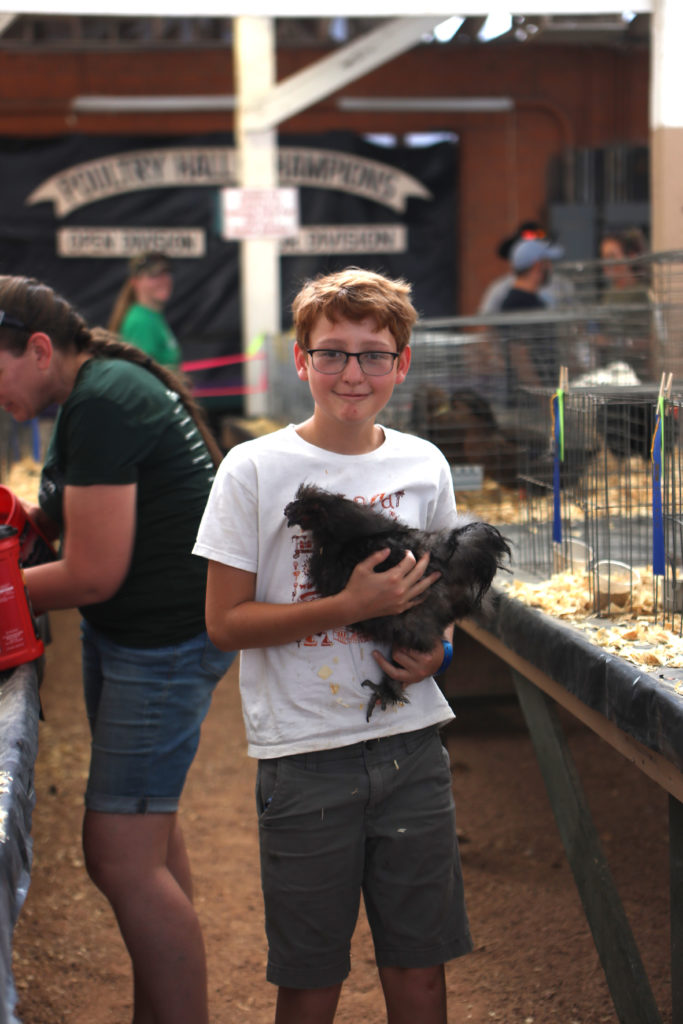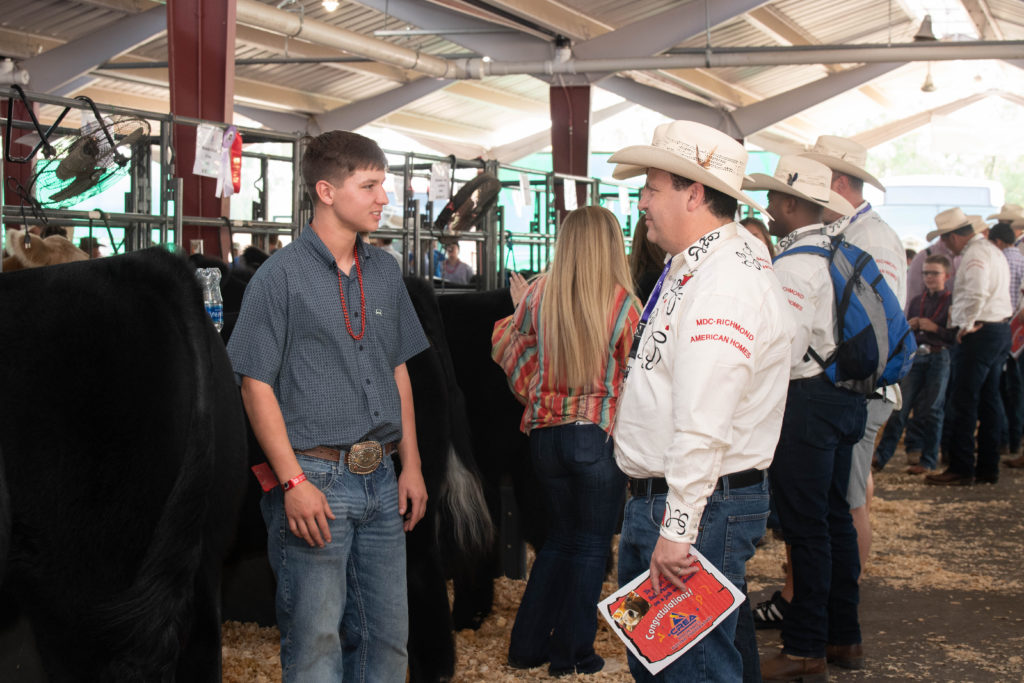
The Colorado State Fair is the perfect opportunity for 4-H members to showcase the skills they have learned and projects they have worked on throughout the year.
At the annual State Fair, the success of thousands of youths who have grown and learned new things through 4-H is celebrated. The State Fair allows them to cultivate the skills they have achieved while working on various 4-H projects and discover new areas of interest, while their life skills and good character are also improved as they practice and meet new people.
The Colorado State Fair is held each year at the Colorado State Fairgrounds. This year’s 150th celebration will be held starting Friday, August 26, running through Monday, September 5, 2022.
Colorado 4-H programs during the State Fair create opportunities for youth to learn, practice, and apply skills, knowledge, and abilities to prepare them for success in education, career, and life. The leaders constantly strive to “Make the Best Better!”
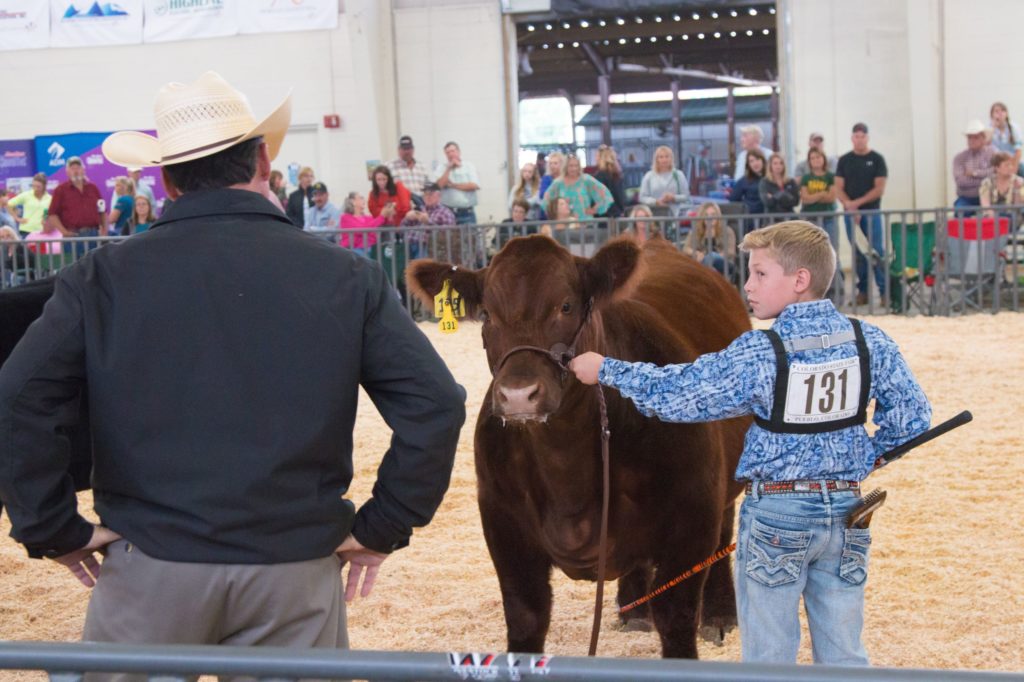
About 4-H
4-H, similar to the Colorado State Fair, is celebrating its 120th anniversary this year and over that span of time has become the nation’s largest development organization for youths, supporting nearly six million youth across the country thus far. The concept behind 4-H is simple: help youths and their families gain the skills they need to be proactive community forces and develop ideas for a more innovative economy.
Every year, 4-H reaches over 110,000 youth in Colorado, helping them to become independent, confident, and compassionate leaders. 4-H is delivered by a community of over 100 public universities across the country that provide experiences and citizenship. The Colorado 4-H network of more than 10,000 volunteers and almost 100 professionals and staff provide support and caring mentoring to all 4-H members helping them to grow into true entrepreneurs, leaders, and visionaries.
The mission of Colorado 4-H is to empower youth to reach their full potential by learning and working in partnership with caring adults. Their vision is a world where youth and adults work, grow and learn together.
How 4-H Became
Below is the history of how 4-H came to be:
Making Connections in the Late 1800s
In the late 1800s, it was discovered that adults in the farming community were not ready to accept new agricultural developments on university campuses. However, young people readily accepted new thinking and would experiment with new agricultural ideas and share their experiences with adults. This allowed rural youth programs to introduce new agricultural technology to farming communities.
The concept behind practical and hands-on learning originated from the desire to connect public school education to country life. Creating community clubs to help solve agricultural roadblocks was a significant step toward youth learning more about the industries in their community.
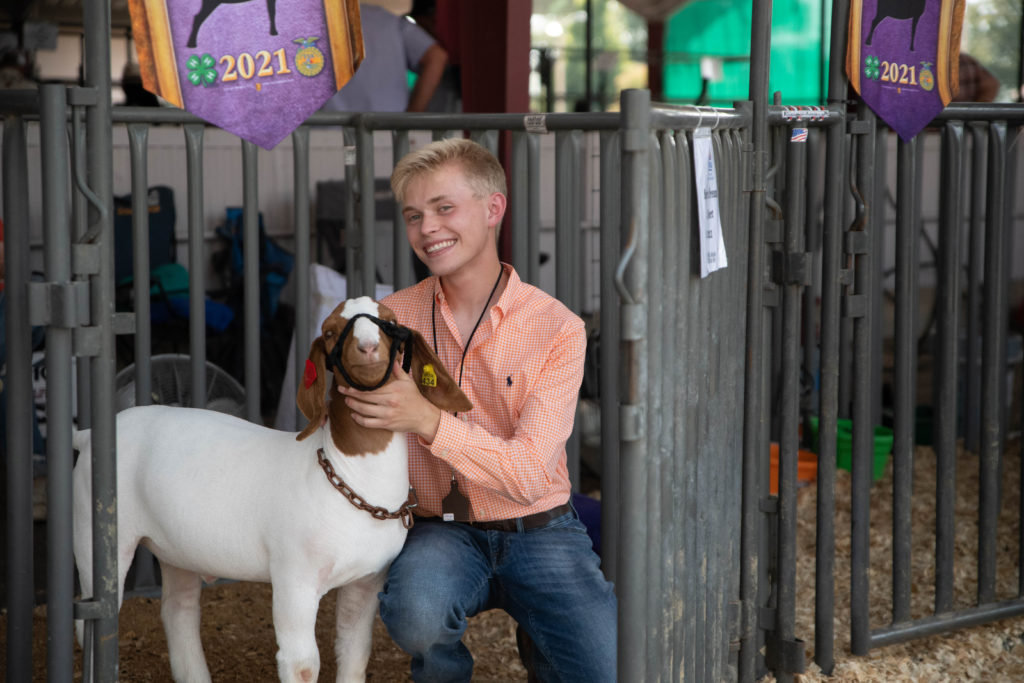
Youth Clubs Formed in 1902
A.B. Graham founded a youth program in 1902 in Clark County, Ohio, which was considered the origin of 4-H in the United States. The first youth club was known as the “Corn Growing Club” or the “The Tomato Club.”
T.A Erickson from Douglas County, Minnesota, created local after-school agricultural clubs and fairs that same year.
Jessie Shambaugh created the clover pin in 1910, which included an H on each leaf. By 1912 they were referred to as 4-H clubs.
The Cooperative Extension System of 1914
In 1914, the Smith-Lever Act was passed, creating the Cooperative Extension System and nationalizing 4-H. Later, 4-H clubs were formed with the clover emblem in 1924.
The Cooperative Extension System is a partnership of NIFA within the USDA with over 100 land-grant universities and above 3,000 county offices across the nation. The system combines the expertise and resources of the state, federal, and local governments and is designed to meet the knowledge, research, and educational program needs.
4‑H Today
4-H currently serves youth in urban, rural, and suburban communities in every state across the country. Members handle the nation’s leading issues, from climate change to global food security, sustainable energy, and childhood obesity. 4-H in-school enrichment programs, clubs, camps, and out-of-school programming offer various STEM opportunities, including robotics, agricultural and animal science, rocketry, computer science, and environmental protection, to improve the nation’s ability to compete in integral scientific fields and tackle the top challenges of the 21st century.
What is 4H?
4-H is a youth development program delivered by the Cooperative Extension System, a community of public universities across the nation that offers experiences where young people learn by practicing.
For over a century, 4-H has welcomed youth of all backgrounds and beliefs, giving them the voice to express who they are and how they improve their lives and communities.
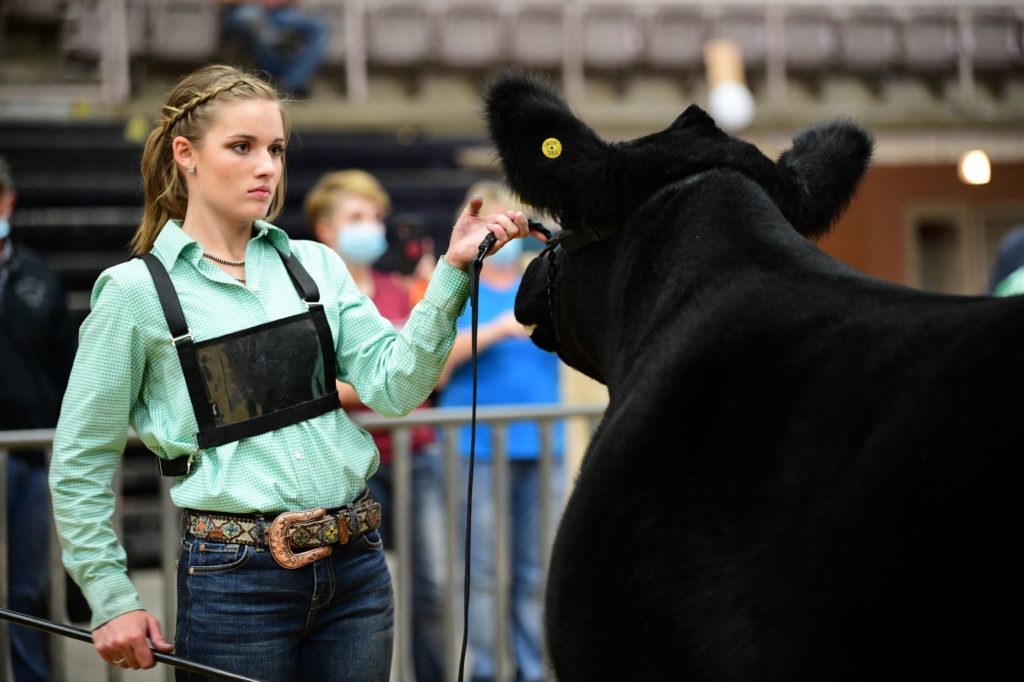
Through life-changing 4-H programs, almost six million kids and teens have resolved critical societal issues such as engaging in civil discourse, addressing community health inequities, and advocating for equity and inclusion for all.
The 4-H programs believe in:
- Young people’s potential
- Developing youth who are hard-working, empowered, determined, confident, responsible, and compassionate.
- Helping young people realize a world beyond themselves so that they learn the life-long skills to succeed in education and career
- Advocating for access and equity for all
- Practicing positive youth development by delivering positive learning experiences
- Caring and supportive adult mentors who nurture positive relationships with youth
- Creating diverse, safe, and inclusive environments and meeting young people wherever they are.
4-H is built on the principles of thought (head), compassion (heart), service (hands), and healthy living (health).
Head
4-H has successfully made young people become more clear and original thinkers. The program focuses on STEM education to foster strong, creative thinking. 4-H members finish the programs with better critical thinking skills, intellectual curiosity, and more innovative approaches to everyday problems leading them to become lifelong learners ready to handle the issues that matter most in the community.
Heart
4-H youths pledge their hearts to greater care and loyalty for their friends, families, and communities. They are committed to understanding and helping others to improve the world around us. This principle is represented through the agricultural programs that foster a deeper understanding of the connection in different communities through animal husbandry, food, and other agricultural themes.
Hands
Members of the 4-H programs are committed to adding valuable support to their communities through community service and other initiatives. Activities such as fundraising, beautification projects, and neighborhood clean-up help them learn that becoming true leaders means giving back.
Health
A healthy lifestyle is another critical part of the 4-H youth development program. It focuses on good physical and mental health to create sharp, effective leaders. 4-H provides young people with the basic knowledge and skills needed to develop healthy habits and be mindful of their mental health to become role models in their communities.
Although there are only four principles of 4-H, all of them fulfill each H in the 4-H, and each has a unique program. 4-H members don’t only become leaders in one H but all four. The diversity in mission and thought helps them become even better future leaders.
Summary
The Colorado State Fair is an annual tradition celebrated in Pueblo that creates inspiring, entertaining, and educational inter-generational experiences and highlights the promotion, preservation, and exposition of the state’s vibrant and diverse industry, agriculture, and of course, culture.
The State Fair programs and competitions help young people reach out to their communities and better understand how issues like agriculture connect people. And this year, Colorado’s 150th State Fair celebration is no different.
Visit the Colorado State Fair for information about this year’s 4-H static and animal performances, as well as in-person contests and competitions planned for the State Fair. Buy your ticket now to secure your place at the state fair, or call us today at 719-561-8484 for inquiries about exhibiting, participating, or judging 4-H competitions at the upcoming Colorado State Fair.


